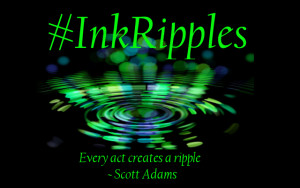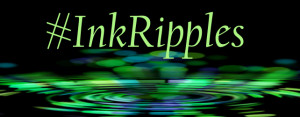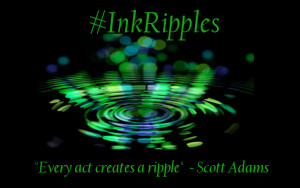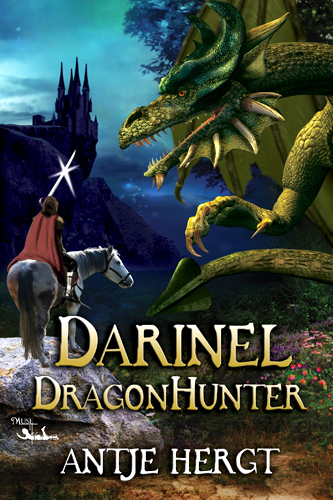 Now that you all know from my earlier April #InkRipples post that revision isn’t my favorite part of the writing process, I’ll share some tips on how I try to make it easier on myself. Some of these work for my particular process and some are more general, but I hope you find them helpful. And as with so many things in writing, if they don’t resonate with you, then feel free to ignore them!
Now that you all know from my earlier April #InkRipples post that revision isn’t my favorite part of the writing process, I’ll share some tips on how I try to make it easier on myself. Some of these work for my particular process and some are more general, but I hope you find them helpful. And as with so many things in writing, if they don’t resonate with you, then feel free to ignore them!
Take Time Away (But Not Too Long)
So you’ve finished that first draft and celebrated (and, yes, you should always celebrate such a milestone). Now what? File said manuscript away and take a break from it. Get outside and enjoy some fresh air, take a shower, go on vacation, start a new project…do something other than think about that newly finished draft.
I’m not going to give a set timeline for how long to stay away, but I’d say at least two weeks. Do set a deadline, though, for coming back to it; otherwise you might just find yourself in a perpetual state of procrastination (this from the girl who procrastinates so well on revision that she procrastinated on writing her blog posts about revisions!). The key is to come back to it with fresh eyes so you can have some semblance of objectivity but not wait so long that it feels like old news.
Have a Plan (But Be Flexible)
I find starting revisions to be incredibly overwhelming and having a plan is one way to make it feel more manageable. It breaks down the process of revision into measurable tasks that can be checked off, so you can see you’re actually making progress.
I have actually started creating my revision plan while I’m drafting. I keep a document in my project folder (or take notes in my notebook and transfer them to the document) with a list of things to tackle in revisions. This helps keep me from going back and revising while I’m still drafting (more on this in the next tip). Some notes are as simple as filling in a detail I didn’t want to stop and research in the moment. Others are big, like fix that giant plot hole you’ve written yourself into. One task that inevitably shows up is to do a search for that manuscripts crutch words and eliminate as many as possible (for one recent manuscript “just” and “even” were among the offenders).
Also, recognize that your plan may change as you go along and may even expand at times as you notice new things that need to be addressed during revision. Things on your list may need to be thrown out all together. (Yup, I’m talking about revising your revision plan!) That’s where the flexibility part comes in.
Start Big (Then Move to Small)
Once I have a good working plan, I like to break it down into big revisions and small revisions. Big revisions are things like fixing plot holes, adding or getting rid of scenes, fleshing out characters, changing point of views. Basically getting the story in shape and not necessarily about the words used to tell it.
Small revisions are when you start to look at the language, grammar, and the nitpicky parts of writing. Does the writing have good flow, interesting language, strong verbs, sparse adverbs, action tags instead of a ton of dialogue tags, varied sentence structure? These are a few examples, but basically small revisions are more about the words you are using and the way they are put together and less about the story.
I recommend starting with big revisions and then moving to the small ones because it’ll probably end up saving you time in the long run. Why bother making the language of a scene shine only to later end up deleting it all because of a plot change? I used to spend so much effort going back to older pages and revising while I was in the process of drafting a novel. I know some writers who do this and do it with success, but I don’t revise while drafting anymore. It’s helped me to be a faster drafter, even if it feels like the drafts are messier. In the long run I save a lot of time and hassle by moving forward while drafting (and jotting down those revision notes as I go along) and saving the revisions for later.
Know Your Strengths (and Weaknesses)
This bit of advice applies both to your strengths and weaknesses as a writer and the strengths and weaknesses of the particular manuscript you’re working on. I know I’m a very plot driven writer, so I’m always pushing myself to be better when it comes to character and voice. But I try not to worry about those things too much while drafting. I let the plot drive my first drafts and then tackle my weaker areas in revision. It gives me a certain confidence to know at least that one area will be strong as I go into revisions.
Aside from my strengths and weaknesses as a writer in general, I find each manuscript has its own set of them as well, somewhat independent of mine as a writer. The first novel I ever wrote (ELIXIR BOUND) was full of repetitive over-written descriptions. I often said the same thing in three different ways, so one major part of my revisions for it was to pick the best description and delete the others (or rework them into a single, stronger one). It also was a hot mess when it came to point of view. Another manuscript (BLACK BUTTERFLY) was drafted one scene at a time and they weren’t written in any particular order. This story has flashbacks that could have been worked into the story in a lot of different ways and other scenes that could have been moved around chronologically. A big revision point was not only figuring out the best sequence of events but also how the flashbacks would fit in.
Ask for Help (If You Get Stuck)
Despite you’re best efforts at having a plan and executing it to better your manuscript, there may come a time in the revision process where you simply get stuck. You’re not sure what you’re doing anymore or if what you’re doing is making the manuscript better or worse. Or maybe everything just feels like it belongs on a heaping pile of dung. Like when you first finish that draft, it’s a good time to take a break. It’s probably more a matter that you’ve lost all objectivity on your own work and not so much that it sucks!
This is a good time to have one or two trusted beta readers. It can be incredibly scary share your work with others when you’re feeling bad about it, but it can also be incredibly rewarding. In a moment of insecurity, it’s best not to share work with people you haven’t worked with before, but it can be a lifesaver to share it with someone who you trust to put you back on track.
If you don’t have someone like this in your writing life yet, try reaching out to different writing communities and connecting with a new critique partner. Offer to do a few chapter swap and share with them something more polished than the work that’s giving you trouble. If it feels like a good match, go ahead and send them the hot mess and see what they make of it (and if it doesn’t feel like a good match, try again with someone new). Hopefully you’ll get some great feedback (and then you’ll have to start the whole revision process all over again!).
Okay, that’s all I’ve got for now! What are your best revision tips?
 #InkRipples is a monthly meme created by Katie L. Carroll, Mary Waibel, and Kai Strand. We pick a topic (April is about revision), drop a ripple in the inkwell (i.e. write about it on our blogs), and see where the conversation goes. We’d love to have you join in the conversation on your own blogs or on your social media page. Full details and each month’s topic can be found on my #InkRipples page.
#InkRipples is a monthly meme created by Katie L. Carroll, Mary Waibel, and Kai Strand. We pick a topic (April is about revision), drop a ripple in the inkwell (i.e. write about it on our blogs), and see where the conversation goes. We’d love to have you join in the conversation on your own blogs or on your social media page. Full details and each month’s topic can be found on my #InkRipples page.

























